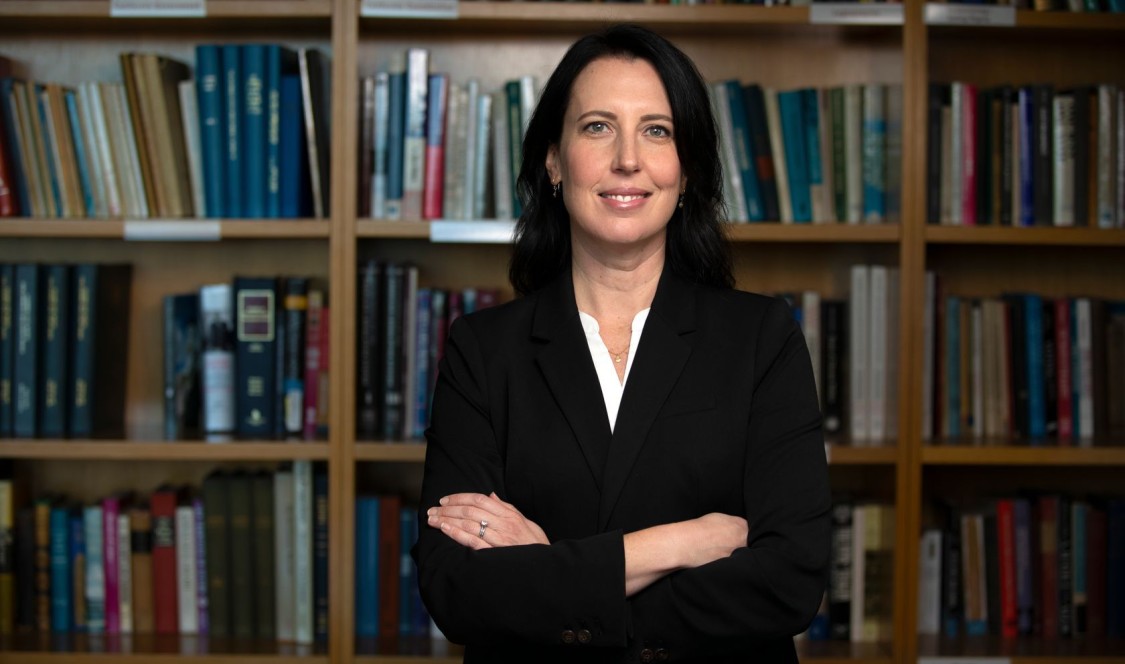Shanna Rose is not a political junkie. At all. “I find the horse race aspect so uninteresting,” Rose said. “Nope, my heart is more in the policy. How do we solve the problem?”
That makes her the perfect problem solver to direct CMC’s public policy major, which was offered for the first time this past academic year. The reason for the upgrade from a sequence was simple, said Rose, Tuohy Associate Professor of Government and Management. Students interested in government and economics were asking for a complementary package of courses that would best prepare them for public policy internships and graduate school, along with roles in consulting, the nonprofit sector, and at think tanks.
- Shanna Rose, Tuohy Associate Professor of Government and Management
- Expertise: Public policy, American politics
- At CMC since: 2014
- Hometown: Kailua, Hawaii
“CMC has such a fantastic foundation in political philosophy and American political development,” Rose said. “So, it’s really exciting for us to give students some more tools: Analytical and quantitative tools, critical thinking tools, even the writing of memos and policy reports is much different than a government research paper.”
An economics major at Swarthmore College, Rose worked at two think tanks in Washington, D.C. to gain formative experience before earning her Ph.D. at Harvard. Watching colleagues testify before Senate committees taught her that policy is always affected by politics. “It matters so much,” Rose said. She recalled her first job out of college working at the Peterson Institute for International Economics. Rose was hired by senior fellows to help with issues related to the North American Free Trade Agreement (NAFTA). However, then-President Bill Clinton soon lost fast-track trade negotiating authority, and overnight, “trade was a dirty word in Washington.”
“No one wanted to talk to us,” Rose said. “It was a visceral lesson in realizing how topics rise and fall based on the political momentum of the moment. Some are hot, some are not. You can get so much more accomplished if you are working on something that people care about in D.C.”
Rose, who has since spent much of her career studying health care policy, always knew she’d end up teaching (she comes from a family of educators) at a liberal arts college. “I really wanted to be in a place that valued relationships with students, especially in small classes,” she said.
CMC’s public policy approach is bolstered by analyzing real case studies, an important tenet of her teaching philosophy. It’s also what informs Rose’s latest book, Responsive States: Federalism and American Public Policy, which examines how states respond to federal policies based on cases like Superfund, the No Child Left Behind Act, and the Patient Protection and Affordable Care Act.
As student interest spikes in areas like climate change, homelessness, and education, it’s important to show them examples that capture the complexity of getting policy passed—“the realities of the political process,” Rose said—and in many cases, seeing where issues so often break down. The major capstone, Policy Lab, goes an extra step by putting students to work on policy projects with clients like the Brookings Institution, Bipartisan Policy Center, and RAND Corporation. It’s “an opportunity not many undergrads at liberal arts schools get,” with Rose citing how these early connections between policy making and the real world will help CMC students better understand the policy process—locally, nationally, and internationally.
“We offer a nuanced understanding of what it means to make policy in the world—allowing students to interact with a lot of different perspectives. I think that gives everyone an appreciation for how to enter a policy discussion with humility. Students will often say, ‘I didn’t think of that,’ or ‘I wish I had added that to my memo.’ The class becomes a team that is trying to tackle a difficult problem together,” Rose said.
“Making policy is messy. There often isn’t a clear path or right answer. And sometimes the action taken might feel less than optimal to students. But hopefully, we’ll have given them a clear understanding of why sometimes things turn out that way.”
—Thomas Rozwadowski

